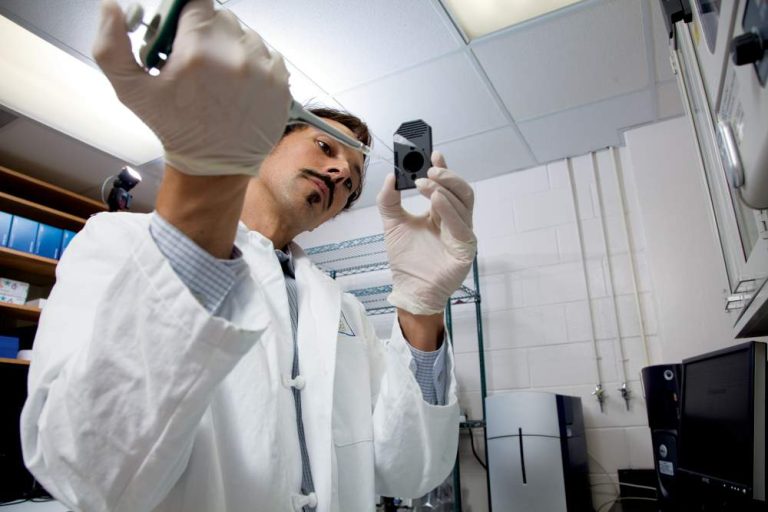South Carolina: Innovation-Ready
Learn how the University of South Carolina, the Medical University of South Carolina and incubators in South Carolina are catalysts for innovation.

South Carolina has built economic muscle across a range of industries from auto manufacturing to aerospace, and it also has amassed a store of brainpower that is leveraging its deep research capabilities, developing a potent tech sector and bringing sophisticated technology applications to a range of industries. According to the CompTIA Cyberstates research report, the state added more than 2,300 new tech jobs in 2015, an increase of 4 percent and a full percentage point more than the country as a whole.
The growth should come as no surprise, as the Palmetto State is home to a diverse array of companies in the aerospace, automotive, advanced materials and bioscience industries, which in turn are attracting and inspiring a new generation of tech startups and small businesses. The state has cultivated an impressive array of incubators and platforms that support and promote entrepreneurship, including the South Carolina Innovation Hub, which helps tech businesses connect with one another.
Applied Innovation
In a recently established public-private partnership, the University of South Carolina (USC) is collaborating with IBM. Big Blue is working with the university to deliver enterprise services across all of the campuses in the USC system. But the partnership extends beyond delivering services; IBM is bringing elite-level, private-sector talent to the table. IBM, meanwhile, has gained the opportunity to recruit, train and mentor USC students, not to mention enlist their help in solving real-world problems.
“It’s the proverbial win-win,” says Dr. Bill Hogue, vice president for IT and chief information officer at USC. “There are ample opportunities for our students to bolster their résumés and get real-life experience with a blue chip partner, and from IBM’s standpoint, internships are a time-honored way of identifying talent and offering [that talent] an opportunity to stay with the company.”
Another notable aspect of the partnership is the five-story Center for Advanced Innovation and Applied Analytics in Columbia. IBM is the anchor tenant at the 65,000-square-foot facility. With other industry leaders – the multinational engineering and construction firm Fluor Corp., for example – being integrated into the partnership, “we look at it as a hive of engineering, business, IT and analytics expertise that will all be interchangeable between corporations and the university,” Hogue says. He sees the future of higher education increasingly marked by strategic third-party partnerships, placing the center on the leading edge of endeavors that aim to foster both innovation and opportunity.
Driving Discovery
Another important collaborative effort is taking place at the International Transportation Innovation Center in Greenville, a one-of-a-kind test center for advanced communication and clean transportation vehicles that was developed in partnership with the Clemson University International Center for Automotive Research. The facility includes highway, urban and “open” test tracks, as well as a wireless charging testbed.
In Charleston, the Medical University of South Carolina (MUSC) and the Harbor Entrepreneur Center have teamed up to launch PriMed, a cleverly named accelerator for medical technology companies. According to Christine Dixon Thiesing, technology licensing officer for the MUSC Foundation for Research Development, the effort builds on the Harbor Center’s well-established program for training entrepreneurs, yet the curriculum has been specially tailored to life sciences, a field that presents complex challenges – like meeting FDA regulatory requirements, for example. The PriMed program requires a commitment of two hours per week for 28 weeks, alternating one week of curriculum with one week of mentoring.
“One of the crucial aspects is what the Harbor Center calls ‘collision,’” says Thiesing, who explains that the program is designed to bring medical technology entrepreneurs together so they can problem-solve as a group and both give and get recommendations about how to move forward. “I almost view it as a support group for entrepreneurs,” Thiesing says. “At the end of the program we hope we’ve given the entrepreneurs the tools they need to run and advance their companies, as well as a network of peers and mentors. There are a lot of people in the region who have been in the industry and are eager to support fledgling companies.”
